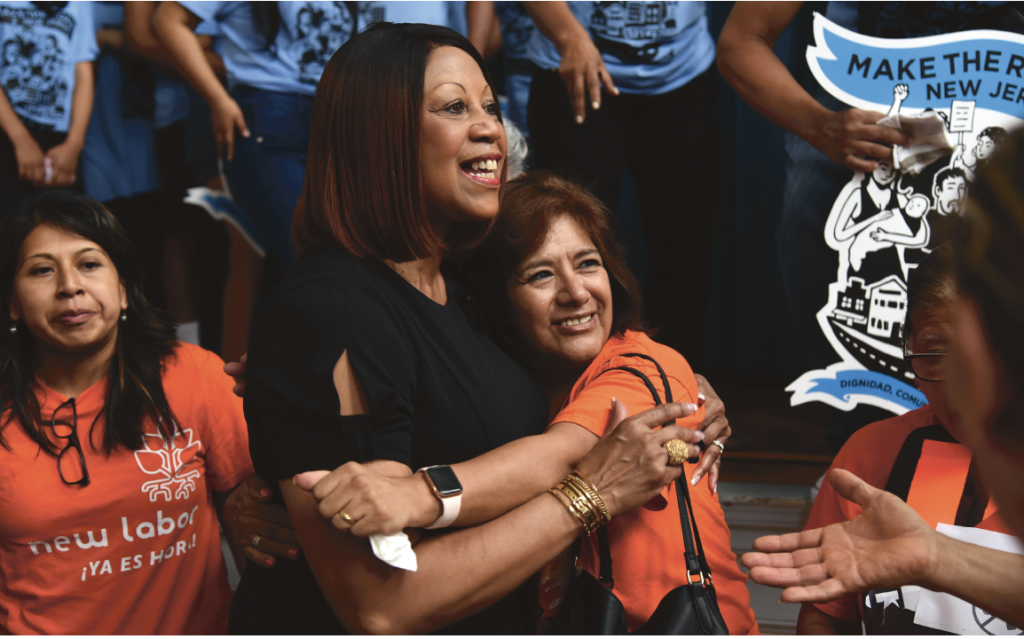In a continuation of our discussion with Lt. Governor Sheila Oliver, we discussed with her the impact of HBCUs on herself, future students and the African-American community.
How did going to an HBCU affect your career and how did it made you a better person and leader?
I can say, unequivocally, no disrespect to my graduate school, Columbia university, I got a better education at Lincoln university then I did at Columbia. First of all, for many students an HBCU is a welcoming environment because of the way housing patterns exist. In this country, we have young people who go off to college who have never been in a classroom with anyone other than people that look like themselves.
I’ve had the opportunity to work in a couple of colleges and universities, in New Jersey and I know how intimidating it has been for some students to come from a Patterson, New Jersey, a Passaic, New Jersey, a Jersey city, a Newark, and for the first time in their lives, find themselves in a learning environment that is integrated. I think HBCUs do provide, and that’s not why most students choose them, a comfortable, welcoming environment. I think that the missions of these institutions are a lot different than some.
A lot of those institutions, which were grown out of a history of systemic racism and discrimination, they understand based on their historical origins, that they can make the difference in what that historical mission was. And, that mission was creating higher education
opportunities for African Americans.
There was a professor, Dr. Joyce Ladner who had been commissioned by the United Negro college fund to do a longitudinal study on graduates of HBCUs around the country. What Dr. Ladner learned was that all across this country the majority of black leadership, in major institutions, major community institutions, state institutions, governmental leadership, civic leadership and faith leadership in this country came from historically black colleges and universities. And that is because I don’t care if they’re in Ohio, Florida, Mississippi, I don’t care where they’re located. The mission is lift as you climb. There’s not one HBCU graduate who has not been steeped in that philosophy. And once you leave that institution, you have an obligation to take what you have learned, what you have experienced and to share that with others. I call that the concept of each one, teach one. And I think you will find that requirement placed on students and graduates at HBCUs more so than you will at some of the state institutions. For instance, our biggest state institution is Rutgers university. Rutgers has become an extremely diverse student population as most of our higher education institutions in New Jersey have.
And because of the experiential backgrounds of those students, they come to those campuses with the same philosophy.
In our tri-state region, we’ve always had what we call educational opportunity funds. They were created in the late sixties, the early seventies. The concept was to take students who are first generation college goers in their families, give them a broad support network, counseling, and other kinds of support to help them get through the college experience. EOF has been extremely popular and successful in New Jersey. We can probably point to over 50,000, 60,000 African American in Latino college graduates in New Jersey who are graduates of our educational opportunity fund program.
The way we start leveling the playing field is to provide access to higher education. And there’s no doubt about it. But HBCUs, I think, are part of our culture. I look at my own institution, Thurgood Marshall graduated from Lincoln university, Langston Hughes graduated from Lincoln university. A lot of the Harlem Renaissance – Cab Callaway is a graduate of Lincoln university. When you are a student and you walk the same roads and the same grassy knolls that people 50, 60, a hundred years before you did, how can you not think that you have the ability to be great just as these students before you became great.
Kwame Nkrumah, the first president of Ghana graduated from Lincoln university. The first African nation to be founded as a democratic country in the West African hemisphere. So we stood on a strong tradition and anyone who is anyone in terms of the diaspora or leaders or black cultural figures, they are gonna make a stop on a black college campus. So in my own experience, whoever were the prominent voices of the day, we could seven o’clock in the evening go to our arts center and hear a lecture or the interpretation of the writing of some of the most famous people in the world who were black. I’m thinking right now of Don Bogle. Don Bogle wrote a book called Toms, Coons, Mulattoes, Mammies & Bucks. It was a book that delved into the stereotypes of black actors and actresses. Imagine what it was like for me as a sophomore to sit in a classroom and learn these things from someone like Dr. Don Bogle. But that is the history and tradition of HBCUs. And, you know, there’s no doubt about it, nobody has a better band than an HBCU.

